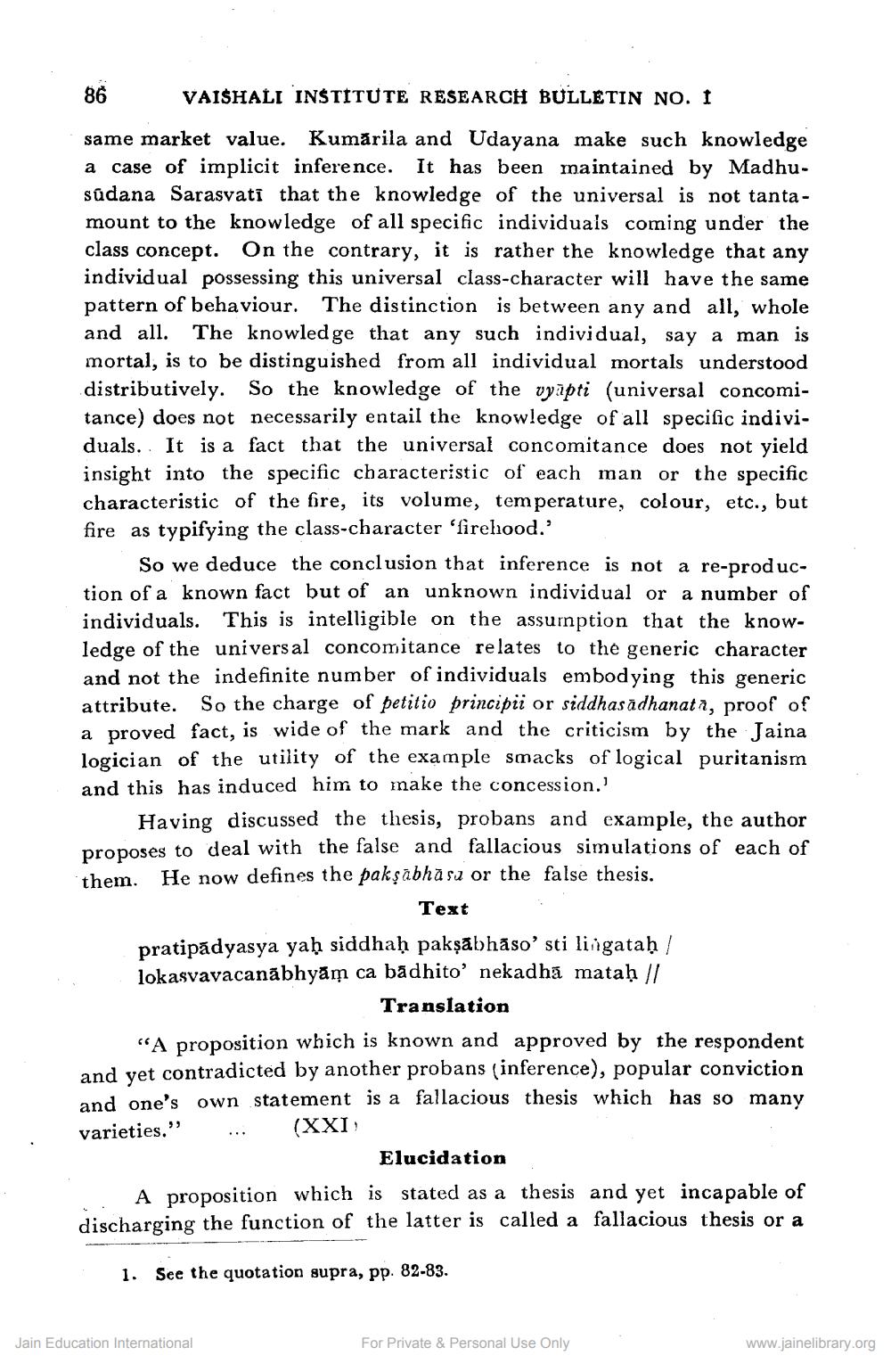________________
86
VAISHALI INSTITUTE RESEARCH BULLETIN NO. 1
same market value. Kumarila and Udayana make such knowledge a case of implicit inference. It has been maintained by Madhusüdana Sarasvati that the knowledge of the universal is not tantamount to the knowledge of all specific individuals coming under the class concept. On the contrary, it is rather the knowledge that any individual possessing this universal class-character will have the same pattern of behaviour. The distinction is between any and all, whole and all. The knowledge that any such individual, say a man is mortal, is to be distinguished from all individual mortals understood distributively. So the knowledge of the vyapti (universal concomitance) does not necessarily entail the knowledge of all specific individuals. It is a fact that the universal concomitance does not yield insight into the specific characteristic of each man or the specific characteristic of the fire, its volume, temperature, colour, etc., but fire as typifying the class-character 'firehood.'
So we deduce the conclusion that inference is not a re-production of a known fact but of an unknown individual or a number of individuals. This is intelligible on the assumption that the knowledge of the universal concomitance relates to the generic character and not the indefinite number of individuals embodying this generic attribute. So the charge of petitio principii or siddhasadhanata, proof of a proved fact, is wide of the mark and the criticism by the Jaina logician of the utility of the example smacks of logical puritanism and this has induced him to make the concession.'
Having discussed the thesis, probans and example, the author proposes to deal with the false and fallacious simulations of each of them. He now defines the paksabhasa or the false thesis.
Text
pratipadyasya yaḥ siddhaḥ pakṣābhāso' sti lingataḥ / lokasvavacanābhyam ca badhito' nekadha mataḥ //
Translation
"A proposition which is known and approved by the respondent and yet contradicted by another probans (inference), popular conviction and one's own statement is a fallacious thesis which has so many varieties." (XXI)
Elucidation
A proposition which is stated as a thesis and yet incapable of discharging the function of the latter is called a fallacious thesis or a
1. See the quotation supra, pp. 82-83.
Jain Education International
For Private & Personal Use Only
www.jainelibrary.org




